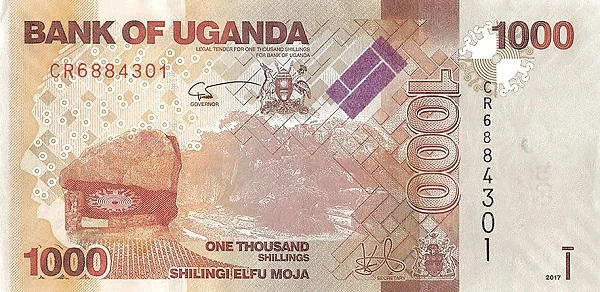Uganda has stated that it is performing a cost-benefit analysis that will guide its choice to switch from low denomination banknotes to coins.
The nation seeks to address the rising expenses associated with printing banknotes and determine which denominations may be replaced with less fragile and economical coins.
“Given high currency printing costs, we have conducted a market study to compare printing costs, and a cost-benefit analysis of replacing low denomination banknotes with coins,” read part of Uganda’s letter addressed to the International Monetary Fund (IMF).

The 1,000-shilling paper note, which is widely used in transactions but has a shorter lifespan due to frequent reprinting caused by excessive soiling, will be phased out gradually by the Bank of Uganda.
“The entire Ush1000 note will be gradually withdrawn. The notes, which were heavily used in transactions, soiled heavily rendering them unusable with and with a reduced lifespan. We have to reprint them frequently, yet the cost of printing relative to value is quite high,” said the Director of Research and Policy at the Bank of Uganda, Adam Mugume.
Read Also: How Uganda Plans to Combat Tax Evasion
The 1,000-shilling coin created in 2012 to mark Uganda’s independence has remained in circulation despite the fact that specifics regarding the timing for replacing the notes and the denominations intended for replacement have not been made public.
One of the several initiatives listed in the Memorandum of Economic and Financial Policies is the substitution of currency notes with coins. The government of Uganda aims to reassure its development partners, such as the International Monetary Fund (IMF), that it would implement cost-effective reforms and achieve long-term budget reduction.
Subscribe to Switch TV for more content
According to the report, currency-related expenses rose from Sh147.5 billion during the 2020–21 fiscal year to Sh171.9 billion as a result of an increase in demand for cash following the economy’s reopening and an increase in inflation.
Trading at Ush25.61 against Ksh1, the Ugandan currency ranks fifth in East Africa after Burundi at Burundian Franc (BIF)19.91 for Ksh1. The Congolese Franc(CDF) is third on the rank at CDF17.84 per Kenyan shilling while the Tanzanian shilling (Tsh) exchanges at Tsh17.20 for Ksh1. The Rwandan Franc (Rwf) trades at Rwf8.23 per Kenyan shilling.



























